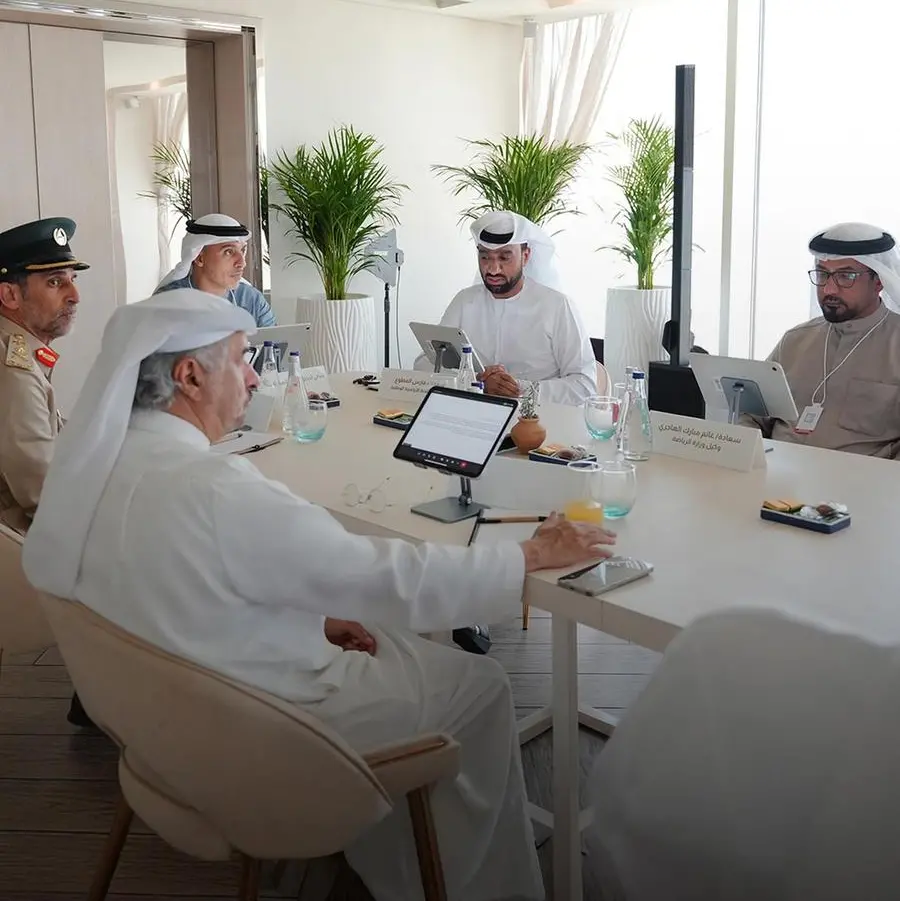The aggregate value of all capital and liquidity measures adopted by the CBUAE since 14 March 2020 has reached AED 256 billion, consisting of AED 50 billion capital buffer relief, AED 50 billion zero cost funding support, AED 95 billion liquidity buffer relief and AED 61 billion reduction of cash reserves requirements.
Abu Dhabi: To mitigate the repercussions of COVID-19 pandemic, the CBUAE has decided to reduce by half the reserves requirements for demand deposits for all banks, from 14% to 7%. This will inject liquidity of about AED 61 billion, which can be used to support banks’ lending to the UAE economy and their liquidity management.
The CBUAE has further extended the duration of the Targeted Economic Support Scheme for affected retail and corporate customers and made other enhancements to the scheme.
Banks and finance companies participating in the TESS programme will be able to extend to their customers’ deferrals of principal and interest until 31 December 2020.
For banks participating in the TESS programme, the CBUAE has granted an extension of the capital buffer relief to 31 December 2021. The value of capital buffer relief is AED 50 billion.
For banks and finance companies participating in the TESS programme, the CBUAE has granted an extension of the zero-cost funding facility against collateral until 31 December 2020. The value of the zero cost funding program is AED 50 billion.
Banks participating in the TESS programme will be able to use a third of their current regulatory liquidity buffers. Banks will have the flexibility to maintain a minimum LCR of 70% and a minimum ELAR of 7%. The overall release of regulatory liquidity buffers is estimated at AED 95 billion. This liquidity can be used to compensate for the effect of posting collateral required by the TESS programme.
The planned implementation of certain Basel III capital standards will be postponed to 31 March 2021 for all banks, to minimize the operational burden on the financial industry during this challenging period.
In collaboration with the two regulatory authorities of Financial Free Zones, FSRA and DFSA, the CBUAE has issued guidance for banks and finance companies on the implementation of the financial reporting standard, IFRS 9. It enables banks and finance companies to employ the flexibility embedded in the framework, while effectively ensuring compliance and consistency. The guidance was issued for public consultation today, and it is expected to be finalized by April 8, 2020.
CBUAE has issued a new requirement for all banks to apply a prudential filter to IFRS 9 expected loss provisions. The prudential filter aims to minimize the effect of IFRS 9 provisions on regulatory capital, in view of expected volatility due to the COVID-19 crisis. Any increase in the provisioning compared to 31 December 2019 will be partially added back to regulatory capital. IFRS 9 provisions will be gradually phased-in during a five-year period, ending 31 December 2024. Banks will be required to disclose the effect of the application of the filter in their financial statements and Pillar 3 reports. This requirement is fully consistent with the guidance of the Basel Committee issued on 3 April 2020.
Commenting on the measures, H.E. Abdulhamid Saeed, Governor of the Central Bank of the UAE, said: “The CBUAE continues to take appropriate and necessary actions to support the UAE economy in light of the COVID-19 pandemic. The additional measures announced today will effectively relieve the pressure on financial institutions, allowing them to continue to carry out their crucial role as the backbone of the economy while offering the required relief and continued access to funding for businesses and households.”
H.E. Abdulhamid Saeed added: “The steps the Central Bank of the UAE is taking are forward-looking, targeted and diverse, demonstrating that we are leveraging the full potential of the tools we have at our disposal, within our mandate. The CBUAE expects banks and finance companies to make active use of the TESS facility, for the benefit of their customers and the UAE economy.”
© Press Release 2020Disclaimer: The contents of this press release was provided from an external third party provider. This website is not responsible for, and does not control, such external content. This content is provided on an “as is” and “as available” basis and has not been edited in any way. Neither this website nor our affiliates guarantee the accuracy of or endorse the views or opinions expressed in this press release.
The press release is provided for informational purposes only. The content does not provide tax, legal or investment advice or opinion regarding the suitability, value or profitability of any particular security, portfolio or investment strategy. Neither this website nor our affiliates shall be liable for any errors or inaccuracies in the content, or for any actions taken by you in reliance thereon. You expressly agree that your use of the information within this article is at your sole risk.
To the fullest extent permitted by applicable law, this website, its parent company, its subsidiaries, its affiliates and the respective shareholders, directors, officers, employees, agents, advertisers, content providers and licensors will not be liable (jointly or severally) to you for any direct, indirect, consequential, special, incidental, punitive or exemplary damages, including without limitation, lost profits, lost savings and lost revenues, whether in negligence, tort, contract or any other theory of liability, even if the parties have been advised of the possibility or could have foreseen any such damages.



















